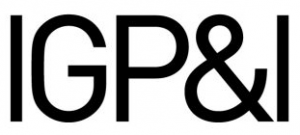Despite mandatory requirements for shipper information on solid bulk cargoes, inaccurate or incomplete cargo declarations are still common in shipments leaving Brazilian ports.

Inaccurate cargo declaration for solid bulk cargoes
Published 05 March 2024
The problem
Domestic law and international regulations require shippers to provide adequate written information about solid bulk cargo well in advance of loading. Internationally mandatory requirements are contained witin SOLAS and the IMSBC Code, Grain Code and BLU Code/Manual, while the Brazilian Civil Code and Commercial Code further details the documentary requirements for cargoes delivered and handleled within the country.
Although these requirements have been around for decades, it is still common to find wrong or incomplete cargo information for mineral and agricultural products carried in bulk. The most common problems include:
Cargo information forms for grains not stating relevant moisture content.
Missing information as required by the IMSBC Code’s “Form for Cargo Information”.
Supplementary certification not provided or outdated.
Description of IMSBC-listed cargoes using trade or commercial names instead of the listed Bulk Cargo Shipping Names (BCSN)
The declared cargo hazard grouping does not conform to the relevant provision of the IMSBC Code schedule or disagrees with the actual appearance and condition of the cargo loaded.
This can generate multiple losses, sometimes with devastating consequences. This could be claims for cargo deterioration, extra costs for delays, deviation, additional port handling, and any damage to the ship. In extreme cases, inaccurate cargo information can even lead to major claims such as for cargo fire, environmental damage or even sinking and loss of life.
Allocation of liability
Master: Most of the liability when loading and carrying solid bulk cargo falls on the shoulders of the carrier through the Master. Before loading starts, the Master must calculate the vessel’s stability for proper cargo stowage and safe carriage and agree on a documented loading and stowage plan with the port operator performing stevedoring services.
The carrier’s liability begins when the cargo is received on board and continues until it is delivered at the destination. The Master must refuse to transport cargo that is visibly in poor condition or that may pose a hazard to human health or the safety of the vessel and property on board. They must also reject any cargo that is not accompanied by legally required documents or that does not match the information stated by the shipper.
Shipper: Under domestic and international regulations, the shipper must fulfil all legal requirements and procedures before loading cargo. This includes compliance with rules and norms issued by the Ministry of Agriculture, Livestock and Supply (MAPA) and other federal regulatory bodies, such as the National Mining Agency (ANM).
In Brazil, the carrier is entitled to compensation from the shipper for losses resulting from improper cargo information. Where international limitation conventions apply, the owner is generally exempt from liability for damages resulting from goods being incorrectly declared – or not declared at all – which otherwise lies with the shipper.
Port operator: The operator of the port terminal or facility must ensure that the loading and stowage of cargo are carried out as agreed with the Master or duty officer, and for unloading any cargo whose carriage is prohibited or whose condition deviates from the information given by the shipper. Likewise, the port operator is liable to the owner for damage caused to the ship and to the shipper for shortage or damage occurring during loading.
Recommendations
Although the shipper’s cargo declaration is a mere statement of the contractual quality specifications that ultimately bind sellers and buyers, many of which are not verifiable by ship personnel at the time of loading or during the voyage, Proinde recommends that:
Master and crew ensure all cargo information is updated and derived from representative analyses of the cargo, particularly concerning the average moisture content (MC) and transportable moisture limt (TML) of the load. Although most qualitative parameters may not be verifiable by the crew, it is crucial that the owner and Master secure documentary evidence provided by the shipper or its representative to safeguard its eventual recovery opportunities.
If there is any doubt about the cargo documentation or content declaration, the Master should consult with the owner and P&I insurer to review the information provided and, if necessary, appoint a qualified surveyor to check the actual quality and condition of the cargo. The surveyor should be able to identify potential hazards and suggest precautions to ensure safe loading and transport. They should also be able to advise on the collection of samples or carry out independent testing to determine the actual parameters of the shipment.
In terms of third-party liabilities and recoveries, Proinde highlights that even if Brazil has not ratified international conventions on limitation of liability, such as the Hague Rules, the Hague-Visby Rules and the Hamburg Rules, its Civil Code stipulates that the shipper is liable for losses resulting from inaccurate or false cargo information, provided the carrier files the claim in court within 120 days, under penalty of lapsing of right. However, this legal provision has not been tested before the courts of appeal with regard to disputes over cargo damage or loss resulting from inaccurate cargo declaration.
A longer version of this article was first published by Proinde. Their article provides an overview of key requirements as well as recommendations to shipowners, Master and crew. We thank them for allowing us to republish their circular.



